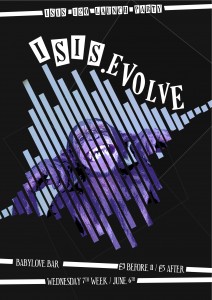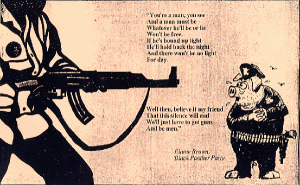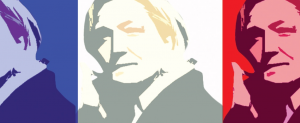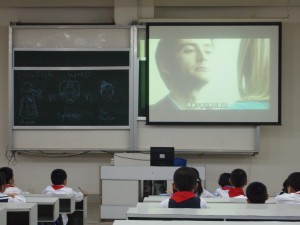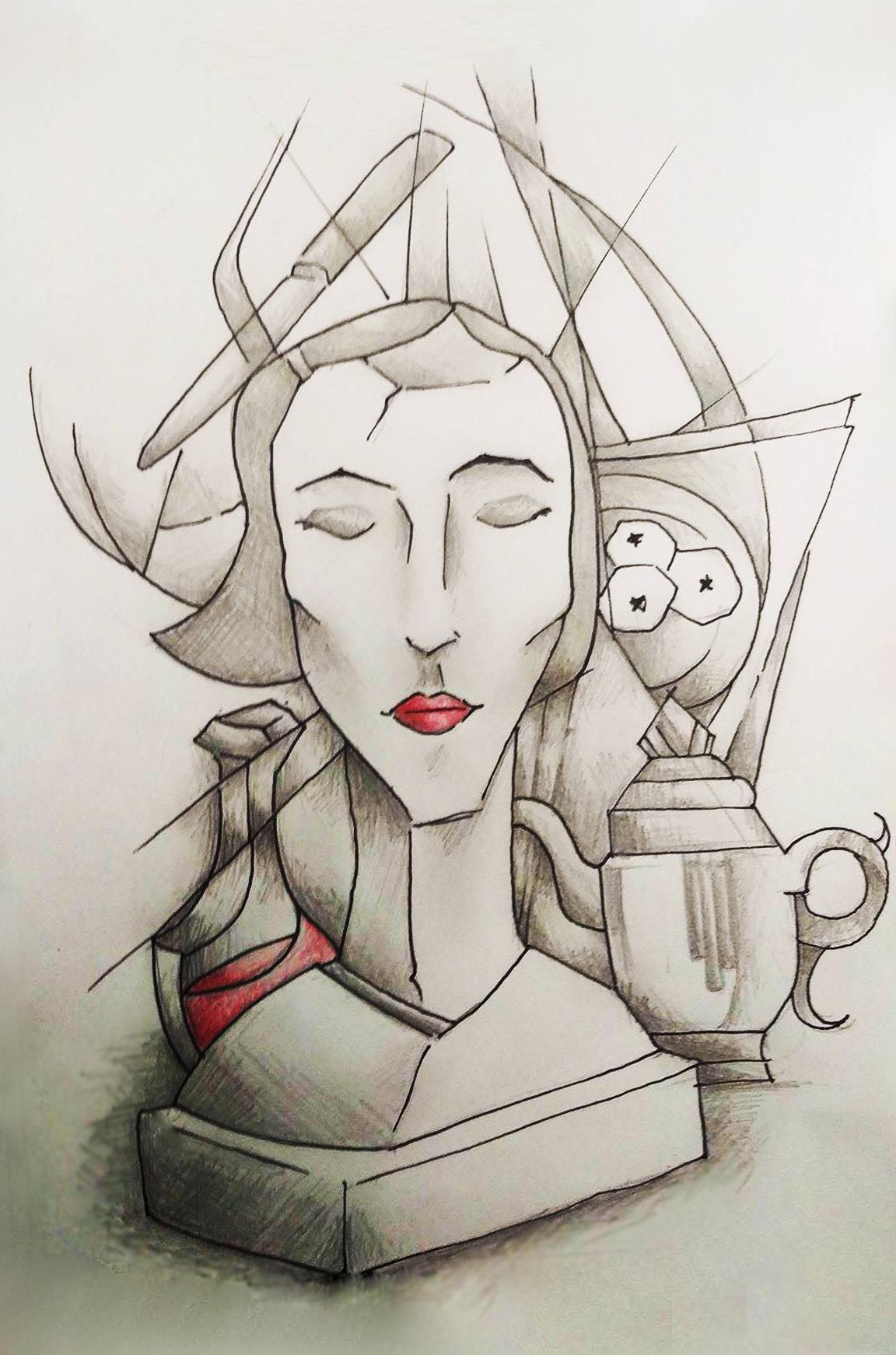
Revelations
by Solly Hardwick | May 20, 2017
London, 1924
They did not normally have people for dinner. The war made such gluttony feel unfair; the empty chairs and departed voices had subsumed the vivid pleasures of ante-bellum times. But now, for the first time in a very long time, there would be something of a party at number fifteen Eaton Square. And, of course, a party requires preparation: silver was polished, woodwork dusted, finest china rediscovered, even finer vintages procured, proper dress brought from its cobwebbed caverns. All manner of adornments that had been developing wrinkles and crow’s feet, had an opportunity to look youthful once again. Most crucial amongst all things to be considered, however, was the food. The reputation of this house had always been that of a great entertainer, with empyrean food filling the gullets of its guests. This night had to exceed the altitudes reached in previous times.
*COURSE ONE*
‘Silvia, this soup is exquisite. I haven’t tasted anything quite like it, with all my travel.’ These words, punctuated by clean mouthfuls of soup and cultured sips of wine, came from their most unfamiliar guest: a friend of Arthur’s brother, who was also present.
‘Direct your compliments to the chef for cooking, and myself for discerning recruitment’, she said with some mirth.
Her husband was busy in conversation with his brother, the clergyman, and Charlotte, so she decided to peel off some of the mysteries of this unknown guest.
‘What do you do, Mr. Green?’
‘I’m afraid I don’t do; rather, I did. I did do, and I no longer… do, so to speak.’
‘Well, if you don’t do, what did you do?’
‘I served abroad; not in direct combat, but I served his majesty in whatever way I could. Hence my considerable awe at the quality of this food. It trumps its counterparts – even in their homelands.’ It was unlikely that he had visited all the various shores from which their meal derived, but Silvia declined to comment.
‘That is curious. I’ve always envied that life of adventure and travel. I know my son did. It’s what he did.’
‘And why did he stop?’ enquired Green, while his suspicious eyes assumed some sort of slovenliness or lack of service.
Silence.
Arthur stopped talking and eyed his wife. She glanced at the empty chair; the voices around her diminished and the room melted into an iridescent pool of memories: things that he’d liked, touched, made, bought, earned, all shone there momentarily.
‘He didn’t stop. He died in service.’
The next course was brought. They drained their glasses, said their condolences, and resumed conversation.
*COURSE TWO*
‘But remember my dear, my child, that though he may be taken from you now; though the pain of his mortal loss feels eternal, it is but a flicker of anguish compared to the eternity of bliss that you shall find, when reunited with your son in heaven.’
The trouble with clergymen is that they treat every seat as a pulpit, and every chance to speak as a sermon. Nobody bit at this spiritual hook.
‘May I ask…’ said Mr. Green, tentatively, ‘how much you knew of his death? Only, I know of others in this field – espionage you said? – and it seems circumstances are often left quite foggy.’
‘Not in my situation!’ interrupted Charlotte. ‘My husband was taken from me during the war, serving near Baghdad. His death was explained to me in a letter. It was almost an apology, because it seems he was part of a terrible blunder. I thought it quite touching that they should choose to write me.’
The clergyman was eating in silence. Hot buttered potatoes encircled freshly-shot pheasant in a port-infused jus, pursued by long gulps of premier cru Burgundian wine. Silvia seemed distracted from her food. The topic of her son’s death was clearly troubling her, but she seemed curiously keen to extract comparative information from Mr. Green.
‘Well I must say in my situation, since you ask, there was a curious lack of detail. They told me that he made mistakes in the field. Apparently his counterpart did his best to save him, but ultimately the mistakes cost him his life, and nearly both their lives. But I’m not quite sure about it all.’
Green grunted.
‘Why’s that? It’s not the custom for the service to lie.’
‘Well, it’s rather private, but -’
Arthur had one ear on his wife’s conversation, and was listening with rising alarm; she wasn’t really still spouting this paranoid tripe, was she?
‘- they sent us back some of his things from Palestine after he died, and we found a half-finished letter where he seemed to suggest that he wasn’t too keen on his counterpart. Perhaps that he didn’t trust him; not so much as a confidante, more that he didn’t trust that he was a good shot or a sharp-minded fellow.’
To this Mr. Green looked aghast, and took a steadying gulp of wine.
‘Silvia I must interject,’ said Arthur, ‘could you go and talk to the chef and servants? We really are being kept waiting for our third course.’
Her husband seemed relieved as she slowly pushed her chair back, arose with dignity and charm, and glided across the hall.
*COURSE 3*
Away from the others, Silvia speculated. ‘His behaviour is awfully strange, and his past so similar to my baby boy’s. I know Arthur doesn’t like me discussing it and that’s why he sent me away, but he can’t stop Mr. Green from opening up about his past or asking me questions; perhaps I can loosen his tongue. If he knows, knows anything, oh how it would help!’
The third course dwarfed the previous two in its opulence: duck à l’orange, glowing, Helios-like atop a golden stand; a Medieval-looking pig complete with its apple-stuffed mouth; gelatinous lakes of caviar; glistening platters of foreign fruits, sprouting spikes and blossoms that glowed like starlight on sparkling silver platters. All this, swimming in champagnes, Muscat, burgundies, sherries, port – a feast that seemed to drown itself in its own surfeiting. Amidst the rampant gorging, the waiter continued to fill Mr. Green’s glass.
By this point conversation was flourishing, despite the quality of speech faltering as alcohol set its fangs into their minds. Silvia had decided to leave Mr. Green for now, as he was conversing with Arthur and the clergyman about dull political affairs.
‘I say,’ began Arthur, ‘this Ramsay MacDonald fellow really will be the end of our country. If it’d been me in charge, we wouldn’t have allowed them to form unions, let alone a party of government! They’re uprooting an order that built an empire and carried this ungrateful nation through a war for Christ’s sake!’
‘You must not use the Lord’s name like that Arthur’, scolded the clergyman, but then with a more reconciliatory tone he added, ‘even if you are right; and I daresay He’d agree with your politics too! I always found the Conservatives the naturally Christian party.’
Mr. Green was smiling absentmindedly whilst the waiter poured him another hefty glass.
‘I must admit though,’ he began, ‘I am optimistic about some of the changes. Having personal experience of the mismanagement that the old ruling class practiced in the war, I tend to think of these new developments as an opportunity for bettering ourselves, rather than stagnating-’
‘Liberal hogwash!’ erupted Arthur.
There was a pause. Silvia and Charlotte quietened as the atmosphere became unexpectedly hostile.
Silvia attempted to make the tensions into a more palatable dish.
‘Enough of politics my dears. We live in peace now, so let’s not reenact 1916 at this table. Mr. Green, you mentioned you’d travelled a lot in your line of work! Tell us which place you enjoyed the most.’
There was a brief period of adjustment, as the ruffled feathers of these competing males were smoothed down. They shifted on their chairs a little, eyed their half-full plates sickeningly, wiped their mouths with fine serviettes, and finally committed to a ceasefire.
‘That is a truly difficult question.’ He considerably slurred his words in this stumbling soliloquy.
‘I’d say my experiences in Persia were quite sublime. Tehran gave me some of my most treasured memories, despite the immense pressure we were under out there. It’s bloody hard not to get caught. Things were tough, but we managed. Most of the people there were friendly to us, when they didn’t know what we were up to.’ Mr. Green gave a brief guffaw and cleared his throat.
‘Of course the rest of the East is also spectacular. The Biblical lands have a certain charm, beyond their spiritual significance. The food seems like it’s been grown on another planet. Their bazaars yield the most exotic and delicate treats, that I have never rediscovered. Importing simply isn’t the same.’
Silvia was restless. There were too many connections. She wanted to probe further but Arthur interrupted.
‘Did you not say earlier that your time abroad exposed you to some of the great mismanagements of our ruling class? It just seems as if you rather enjoyed your time!’
‘Oh yes, yes… Yes I did say that, but that was just one episode. No need to really go into it too much, it’s rather sensitive if you don’t mind. Still feels’, he took another gulp of wine, ‘fresh in my mind.’
His glass struck the table with a thud.
The atmosphere of hostility had been replaced by one of poignant and fragile disquietude. None seemed quite so aware of it as Silvia and her husband. She knew there was a web here, in which lay connected strands, running between this man and her son. She knew it as fact before it had even been uttered. It was him. Her husband was restless. Keen to preserve his wife’s dignity, he must muzzle her, before she sank into the same paranoid mania that had ensnared her since their son’s death.
*COURSE 4*
The clergyman was hewing large chunks of Camembert; he would delicately marry a piece with a cracker, pause, inspect his art, and then crunch down on the rich cheese. Arthur was loosely tossing grapes into his gaping mouth, whilst his brother, thoroughly drunk, puzzled over a Roquefort. Mr. Green was flitting between a creamy goat’s cheese and a powerful mature cheddar. It took him about thirty seconds to decide that he’d tackle both. Charlotte refrained from eating.
A quiet calm had overcome the clamour of the evening. In the dining room, what little conversation was necessary slid smoothly from their mouths. The staff were confidently engaged in preparing the exquisite desserts, that had been kept secret even from the hosts themselves. Outside, London was settling down. Nocturnal creatures replaced their light-loving counterparts and populated the shadier corners of the city. Very little could be heard in this quarter. Arthur had noticed the empty chair, and, had hastened upstairs. He found her in their bedroom, staring at noxious photographs. Arthur pinioned his wife to the wall and breathed the truth down her neck.
‘Silvia, you need to stop this. You’re doing it again, and it will get us nowhere. I’m heartbroken. I really am heartbroken; we both are. Why must we even say this? But this man had nothing to do with it. You’re not well – ’
‘You’re blind Arthur!’ She pirouetted and strode away from him, only to feel an iron vice clasp her from behind. They said no words, but the grip conveyed everything – eternities of unending disagreements, terse conversations over lukewarm breakfasts, pain cleaving between them at night where their words struggled to reach one another across that chasm – the grip conveyed everything. They walked downstairs together without speaking.
Illustration: Hope Sutherland
